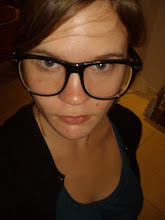When we think of the situation of music industry, it seems like we can only hand a tissue for those who spent years working for a business that seemed incivible.
With sales going down and surfaces accorded to records in stores as well, the adjective that suits the music industry is now: depressed !
Is there anyone to blame? Has the quality of music decreased so for the last past years ?
According to spokesmen of major companies, artists in bankrupt and others : Internet has to pledge guilty.
It is true that for the last decade, internet has revolutionized the music industry. Facing free dowloading, myspaces, sites dedicated to music in streaming, the music industry is now powerless.
Young artists, unknowns, amateurs no longer need to crawl on their kneys in front of the managers of majors records companies in order to be listened.
Myspace pages have allowed many artists in the need to promote their songs. With its simplicity of use, its enternaining approach and its customizable template, myspace represents a great opportunity for artists to get out of their garage. Thanks to a free online listening of home-recorded songs, it offers the exact same advantages as a CD tou've just bought, except that it's for free !

Sucess stories incarnated by
Kate Nash,
Arctic Monkeys and
Lily Allen participated to the expansion of myspace. Every musician, even those who have actually a record on their own post regulary on their myspaces. It's alos a great way, for them, to get out of the codes of corporate communication and official press junkets and to finally express themselves in a less formal way.
Numerous artists are now posting on myspaces their latest songs, test their demos and share their impressions on the latest concert they gave.
Moreover,
free downloading has completely turn the music industry economy upside down. Sales keep on decreasing, and buying a CD seems like an act of faith in an artist. The material aspect of listening to music is now a blurry souvenir for most people, CD towers in one's living room have been replaced by playlists on Itunes, and many parties have now their very own
streaming playlist! Because it is free, downloading allows people to become more curious, to listen or to a posess entire albums of artists they never heard of before... Artists like
Radiohead are perfectly aware of that fact and grab the opportunity to touch a broader public, offering their new album for free or for a price that the internaut chooses on their website !*
This free downloading has many consequences on the industry's health : as many

less records sales, majors companies tend to be even more cautious than they used to be, prefering to concentrate on the "safe values"(artists that would always sell) rather than giving his chance to a total stranger. But what about medium-sales artists? Those who are lucky enough to have signed a contract with a company, but who aren't exactly Mariah Carey?
For them, free downloading only means that their songs are being listened without returning them a single penny back. Emule, Lime Wire and other platforms are provoking a fierce animosity, as they directly insult the artists right to have a financial interest on their work.This conflict is confirmed by
recent laws, not only in France, but also in the US and many others countries,
that condemned users of peer to peer.
As as response, many platforms have come clean, offering their visitors
to pay to download a song. In the US, where chasing "pirates" has become a real struggle, these platforms are sucessful when they know minimal sucess. In France, cases of internauts draught to court are still confidential. Streaming websites have also legalized their businesses, buying rights to the artists for their songs to be present on their sites.
However, even if downloading for free has become a crime, internauts have not changed their practices, and music on the web is not on the edge of disapearing.
Far from the simple vision of music industry facing an outrageous little ennemy called the web, we have to think harder. First of all, Internet does not represent an ennemy for the music. It is its complement. Internet has enlightened the weaknesses of a sector that, in its structure didn't consider that they could be other forms of music than live or recorded CD.
Did any major company offered previous online listening of CDs to come ?Did any suggested to artists to launch free mp3's on the web?
Indeed, for its
lack of imagination and to do not have pay enough attention to a little media that has grown bigger, the music in dustry pays a high price today. But it can be reborn if it understands that music isn't limited to a simple object, to a simple material form, and that they can sell other items than CDs.
We also have to consider the fact that even if the web is a great space for artists to express themselves, the aim of any musician discovered on the net is to get a good old fashioned contract and a album with hit-songs broadcasted on national radios. The traditional system may be weaker but it remains the prevailing model. Thanks to a manager, to a music company, artists can officialy sell CDS, Itunes, tour tickets and so on. Radiohead has even sell more "real" albums than on its website !

The junction between this two worlds appears to be in live music : internet encourages people to know more music, to open themselves and to open their ears. This way, concerts are gathering more and more curious internauts. Concerts that could not be possible without the traditional organization provided by music companies, festivals and tour managers, who together create one of the most powerful and solid network of the artistic world.
*Want to know more about Radiohead's experiment ?
























